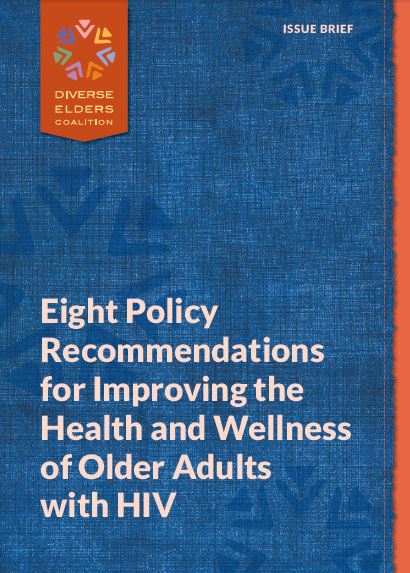Diverse older adults with HIV are living longer lives — learn how you can help
From the first known cases of the HIV epidemic in 1981 until the mid-1990s, most people diagnosed with HIV faced death within a few years, if not much sooner. Yet with the advent of effective anti-retroviral treatments, HIV has become a more manageable chronic illness over the last two decades, as evidenced by the increasing numbers of older people living and aging with HIV. The disease continues to disproportionately affect diverse people, as some studies have found that gay and bisexual men are 44 times more likely to contract HIV than other men, while African Americans and Latinos are 12 and 5 times more likely to be HIV positive than their peers.
Resources such as the Affordable Care Act (ACA) are available to provide additional support for older adults living with HIV/ AIDS. Discrimination based on sexual orientation and gender identity under the ACA is prohibited, and pre-existing conditions are no longer a barrier to coverage.

Download our original policy brief, “Eight Policy Recommendations for Improving the Health and Wellness of Older Adults with HIV.”
Research estimates predict that by 2030, more than 70 percent of Americans with HIV are expected to be 50 and older. While individuals with HIV/AIDS are living longer lives, older adults have more than three other (usually chronic) health conditions in addition to HIV versus their age peers without HIV. As a result, they have a host of health and services needs that neither HIV nor aging services providers are fully prepared to meet. However, older adults have rarely been targeted in HIV/AIDS prevention and awareness campaigns. As a result, many do not realize that their behaviors can put them at risk for HIV infection. Additionally, health care providers may mistakenly assume that older patients are no longer engaged in high risk behaviors, and therefore do not initiate conversation about the importance of using protection and getting tested regularly. Moreover, older adults with HIV are often omitted from major legislation, policy initiatives and programs—from the White House Conference on Aging, to the Older Americans Act and the Ryan White CARE Act, to the Medicaid expansion made available through the Affordable Care Act, and more. Left unaddressed, generations of older adults with HIV will lack the supports they need to age in good health.
The Diverse Elders Coalition created an infographic in September 2015 in honor of National HIV and Aging Awareness Day Check it out here:
Facts and Factors: HIV and Diverse Elders
Consumer Resources
Recognizing that the HIV/AIDS epidemic has disproportionately affected communities of color and LGBT people since its beginning, the Diverse Elders Coalition released an original policy brief, Eight Policy Recommendations for Improving the Health and Wellness of Older Adults with HIV. Download the report.
Our website features a number of powerful stories from long-term survivors of HIV, including in our Diverse Elders Stories Initiative and on our blog. Check out some of the highlights below:
- Helena’s Story: “My greatest gift during the years that I have been living with HIV/AIDS has been the development and recognition of how wonderful and precious life is and can be.”
- Mikael’s Story: “Thirty years later, I am still here using the skills that I learned from so many wonderful people to help others to survive.”
- The View From Down Here by Hank Trout: “So the view from down here isn’t quite so bleak as I had feared all those years. It ain’t no picnic in the park, but it’s not quite so horrible as I anticipated.”
- Passages by Vince Crisostomo: “There is still quite a lot of work to do but for the first time in a long time my heart felt filled with hope and the possibility that I felt at my first Pride back in 1979.”
The Diverse Elders Coalition is proud to offer additional materials from our resources that will help older adults with HIV navigate healthcare and healthy aging. Please click on any document below to read online or download.







